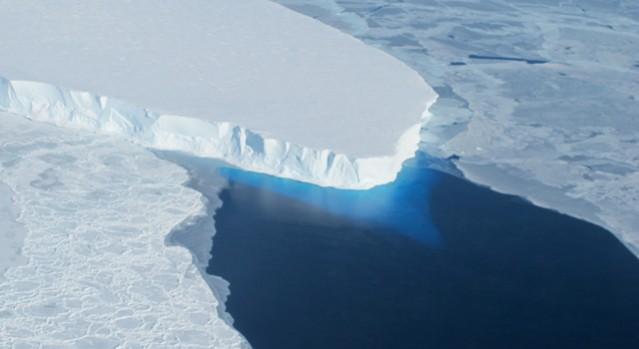A team of scientists believes it has discovered the largest volcanic range on Earth, and the region where it apparently exists could be among the most unexpected ones for many -- under West Antarctica's vast ice sheet.
A remote survey by researchers from the University of Edinburgh identified 138 volcanoes, 91 of which have not previously been identified. The unknown volcanoes, ranging in height from 100 to 3850 metres, are concentrated in a massive region known as the West Antarctic Rift System. Researchers said that the largest of the newly discovered volcanoes is as tall as the Eiger in Switzerland, a 3,967-metre mountain of the Bernese Alps.
According to geologists and ice experts, the Antarctic volcanic range shares many similarities with the east Africa's volcanic ridge, which is currently considered as the densest concentration of volcanoes in the world. The researchers explained the findings in a study, published recently in the journal Geological Society Special Publications series.
"After examining existing data on West Antarctica, I began discovering traces of volcanism," Max Van Wyk de Vries, a student at the University of Edinburgh's School of GeoSciences, who conceived the study, said in a statement. "Naturally I looked into it further, which led to this discovery of almost 100 volcanoes under the ice sheet."

As part of the research, scientists studied the bottom of the ice sheet for hidden peaks of basalt rock, like those of other volcanoes in the region whose tips are visible above the ice. They also used measurements from ice-penetrating radar to analyse the shape of the land beneath the ice, and compared the results with satellite and database records, as well as other geological information from aerial surveys.
Researchers said that their findings won't indicate whether the volcanoes are active, but will help them better understand how volcanoes can influence long-term fluctuations in the ice sheet, and how the continent has changed during past climates. Scientists also said that volcanic activity in the region may increase if Antarctica's ice thins, which is very likely in a warming climate.
"It is fascinating to uncover an extensive range of volcanoes in this relatively unexplored continent. Better understanding of volcanic activity could shed light on their impact on Antarctica's ice in the past, present and future, and on other rift systems around the world," Dr Robert Bingham of the University of Edinburgh's School of GeoSciences said in the statement.











